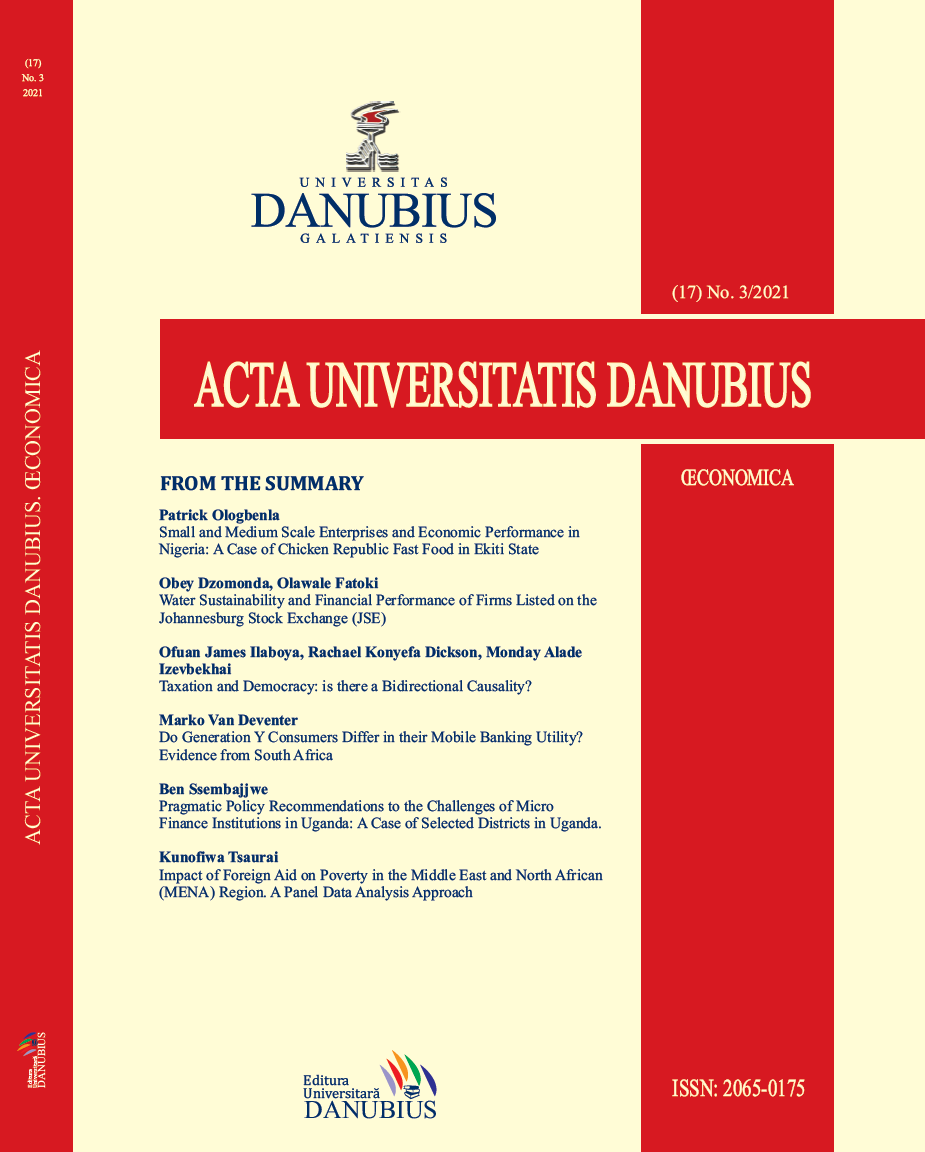Fiscal Imbalance and Macroeconomic Instability in Nigeria: Implications for National Development
Fiscal Imbalance and Macroeconomic Instability in Nigeria: Implications for National Development
Author(s): Ubong Edem Effiong, Supper OkijieSubject(s): National Economy, Business Economy / Management, Micro-Economics, Economic policy
Published by: Editura Universitară Danubius
Keywords: macroeconomic management; budget deficit; fiscal policy; Olivera-Tanzi effect;
Summary/Abstract: This paper sought to investigate the influence of fiscal imbalance on inflation and economic growth in Nigeria for the period 1981 to 2019. In this paper, we utilized the ordinary least squares(OLS) approach in achieving the set objective. The correlation analysis was also utilized to ascertain the nature of the relationship between fiscal imbalance and inflation and economic growth. The correlation analysis revealed that fiscal imbalance has a positive relationship with economic growth, but a negative relationship with inflation. From the regression analysis, it was discovered that fiscal imbalance has a positive and significant effect on economic growth. However, the effect of fiscal imbalance on inflation was negative and statistically significant. Though fiscal imbalance may propel economic growth, it tends to accelerate inflation in the Nigerian economy over the study period. The policy implication of these findings for national development is that fiscal imbalance should be augmented with the appropriate discretionary monetary policy to achieve economic growth and price stability simultaneously.
Journal: Acta Universitatis Danubius. Œconomica
- Issue Year: 17/2021
- Issue No: 3
- Page Range: 118-139
- Page Count: 22
- Language: English

